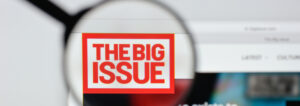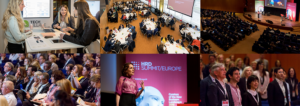Qualities of an HR leader
- 8 Min Read
To truly shine in the future, HR directors will need to embrace and help to steer, their company’s organisational change agenda. But how can they do this?
- Author: Cath Everett
- Date published: Jul 30, 2018
- Categories

Affecting most organisations these days in one shape or form and is being driven by a number of factors, two of the most important of which are demographics and digital transformation.
In the first instance, members of the Baby Boomer generation are now starting to retire and digital-native Millennials and Generation Z are increasingly taking their place. This move is leading to a gradual but increasing shift away from top-down, hierarchical management styles to more collaborative, empowering ways of working with networks of people located both inside and outside of the organisation.

What this means is that HR leaders are now standing at a crossroads. They can either choose to focus on the more traditional, administration-based side of the equation and risk seeing many of their activities automated out, or opt to become more people-centric while at the same time assuming a more “cross-functional” approach.
But if HR directors select the latter route, they will likely need to “broaden out their skillsets” from where they are today, according to Dr Duncan Brown, head of HR consultancy at the Institute of Employment Studies (IES). Ironically they will also simultaneously have to support business managers in developing expertise that has more traditionally been associated with the HR function such as recruitment and rewards.
Another important activity for HR leaders, meanwhile, will be encouraging business leaders to look at the world more broadly. “Business leaders are generally too narrowly focused on their own concerns and don’t focus enough on what’s happening in wider society and their role within it,” points out Brown.
But such considerations are going to become increasingly important, not least in terms of helping organisations develop a positive internal corporate culture and respected external employer brand.
In other words, where HR can really make a difference going forward is in advising senior leaders on areas that make a material difference to the company’s culture and environment in order to ensure organisational effectiveness. These areas include organisational design, incentives and how they influence employee behaviour as well as skills formation and learning.
But to achieve such aims, the skillsets traditionally found within HR departments will need to change – and indeed are already starting to do so.
The HR shift
Christine Naschberger, professor in HR management at the Audencia Business School, explains: “We’re seeing a shift from HR generalist roles to more specialist profiles such as people who are talent management or analytics experts. But there’s also an increasing mix of skills, so we’re seeing more psychologists and neuroscientists, for example, to help organisations understand their people better.”
Over time though, marketing and even customer service skills are likely to make more of an appearance in order to help HR functions achieve such goals as enhancing their employer brand proposition or boosting customer satisfaction levels and internal service quality.
But interestingly, Naschberger does not necessarily expect all of these skills to be held by formal employees of the HR department, which she anticipates could well shrink in size.
“The ‘geek economy’ is growing, which means we’ll see more contract workers in future – and there’s no reason why it shouldn’t be the same for HR,” she says. “So the HR department will function more like a network and if you don’t have the specialised knowledge you need, you’ll bring it in from outside.”
One organisation that is already hiring non-HR people within its HR team is outdoor advertising company, Clear Channel International. Its HR function comprises four people – one people analyst, two change consultants and the fourth who is HR and talent director, Joanna Payne.
“We don’t see ourselves as a traditional HR function – and other people don’t either,” she says. “We’re quite a small team, but we have a big focus on creating connections and communities to drive cultural change.”
According to Payne, this focus is important in an organisation that “operates in expert networks” to enable it to respond quickly to change, particularly in the digital sphere.
But to work effectively, it is vital that such an approach is based on a sound HR foundation in the form of effective and smooth-running processes and procedures around key areas such as compensation and benefits, she says. Values must also be clearly-defined so that “trusted and empowered” line managers have a well-defined framework to take over key activities such as recruitment in collaboration with the finance and legal departments.
Payne’s job in this context, meanwhile, is to “find the right people to create the appropriate connections and ensure they’re engaged. But because a lot of it is about cultural change, it’s also important to push the vision and ensure messages are consistent”, she advises.
Another role that should not be underestimated though is that of playing “counsel to senior leaders on the strategy and wellbeing implications of what they’re thinking about doing”, Payne adds.
IES’ Brown agrees. “Organisational change is an area in which many organisations are struggling,” he says. “But what differentiates those at the top of the HR profession from the rest is the change agenda and acting as the CEO’s right-hand person on how to transform the organisation in a way that engages rather than alienates staff.”
To do so effectively, however, requires HR leaders to display a number of personal qualities on top of a sound technical grasp of their discipline in areas such as employment law and talent management. These qualities include empathy, the ability to negotiate, influence, think strategically and problem-solve.
Audencia’s Naschberger explains: “HR needs to think about the company’s mission and objective, so things like ‘why do we exist?’ and ‘what is our value proposition?’ – and to be able to communicate that to the rest of the organisation.”
The ability to both collaborate, and facilitate others in doing so too, is also a key skill. “To drive significant cultural change, you can’t do it all yourself – you need to take a helicopter view of the organisation so you can introduce people who will benefit from communicating and working together,” says Clear Channel’s Payne. “So it’s your job to manage and engage stakeholders at all levels, which means truly challenging yourself to listen and creating the necessary space for that.”
A nice creative streak likewise does not go amiss as does an openness and willingness to experiment and move out of your comfort zone. “Learn, read and exchange information,” advises Naschberger. “Networking is also very important as it enables you to come across new things, share information and benefit from other people’s experience.”
Integrating soft skills
As these kinds of ‘soft’ skills and qualities come increasingly to the fore in terms of importance though, it could be argued that a competent, people-oriented business leader would be just as equipped to take over the HR director role as someone with a more traditional HR background.
It is certainly the stance taken by Jason Gowlett, HR operations director at insurance firm Direct Line Group, who worked in a number of commercial roles, which included running a call centre, before taking over his current role.
“I came from the business before I moved into HR and so have a better understanding of how it works,” he says. “You also get more respect from the business coming from a commercial background as they know you’ve done other roles.”
Gowlett is likewise convinced that his team is more effective because it comprises a mix of HR and more traditional business skills. “It’s about diversity of thinking as there’s a bigger variety of input and so the output is richer. It’s the best recipe as it has lots of ingredients,” he says.
But Audencia’s Naschberger is not so sure. “Having someone from HR in the lead role gives the function credibility,” she says. “HR is a very wide field these days – there’s the psychological element and there’s also organisational behaviour, which you need to know about in order to motivate staff and guarantee the coherence of your organisational strategy.”
Clear Channel’s Payne agrees. “The sense I get is that CEOs and COOs like the reassurance of having a people expert at the top who is also trained and skilled in providing them with counsel confidentially as that’s who an HR leader is.”
Another vital point she believes is that HR professionals are “wired and built” to see everything through a “people lens” first, which other members of the business are not.
“If you sit around a boardroom table, you know that the commercial director, the sales director and the finance director will look at things through their commercial, sales and finance lenses first, which provides great diversity of expertise at a senior level,” Payne says.
But because HR leaders have “dedicated their life to people” and always have their “people lens at the forefront”, they are in a much better position to represent the interests of the workforce in high-level discussions. “If you put all those lenses together, you can see much more clearly how to develop change and ensure people are at the centre,” she concludes.










